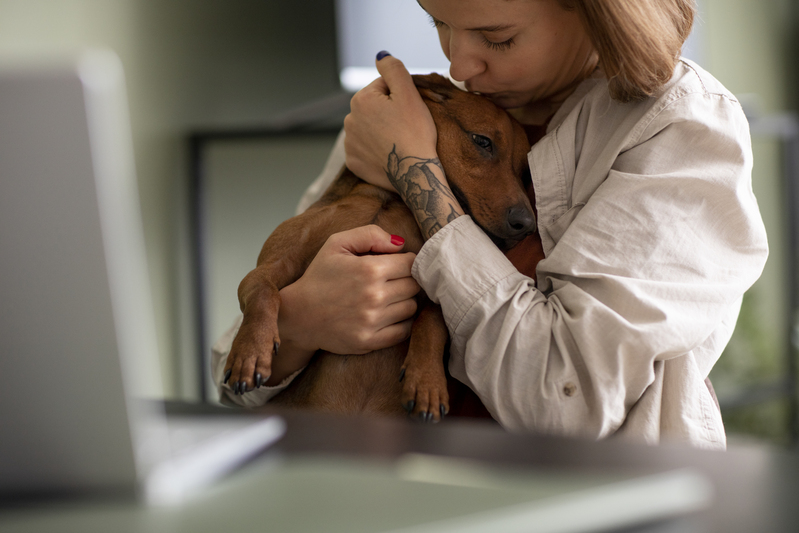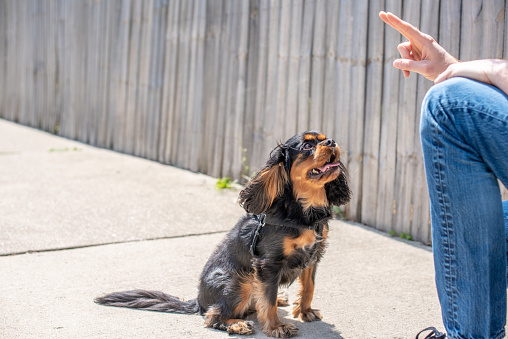
Service dogs provide vital assistance to individuals with disabilities, helping them regain confidence and independence. By performing specific tasks directly related to a disability, they greatly improve their handlers’ quality of life.
Service dogs are individually trained to meet their handlers’ specific needs and are protected by several federal laws, which ensure they can accompany their handlers in public places and can be accommodated by housing providers.
However, while these laws protect fully trained service dogs, service dogs in training do not enjoy the same level of rights. That said, today’s article will explore a new law recently passed in Minnesota, which can be seen as a significant step toward inclusion and a greater understanding of the vital role service animals play in many people’s lives.
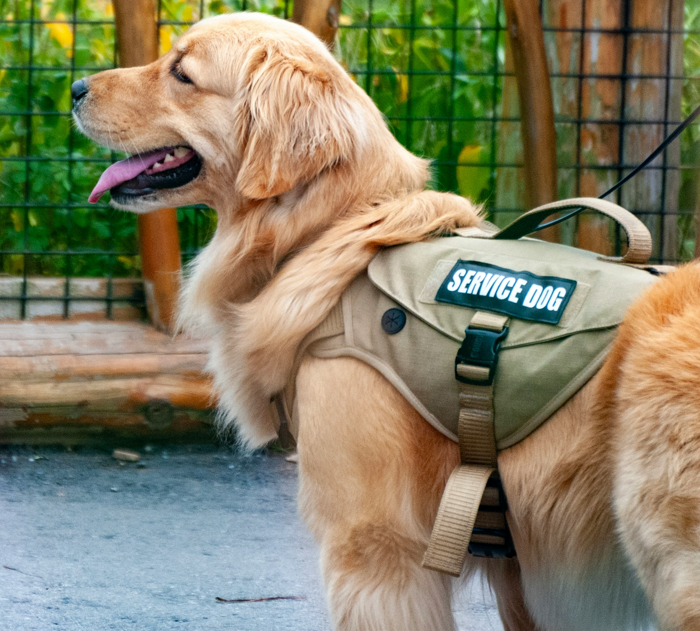
What Are Service Animals, and Why Are They So Important?
Only dogs can become service animals, though miniature horses are also recognized in some US states.
Service animals undergo specialized training consisting of three key components: basic obedience, specific task-based training, and public access training to reliably support individuals with disabilities. They perform specific tasks to help mitigate their handler’s condition, and the nature of these tasks can vary from person to person.
The tasks they are trained to perform can not only greatly improve a person's quality of life and help them regain confidence and independence, but also be life-saving.
Specific service dog tasks include, but are not limited to providing mobility support, guiding individuals with visual impairments, alerting to medical episodes or important environmental sounds, providing deep pressure therapy (DPT) and other forms of tactile stimulation, retrieving items, waking their handler from nightmares, and performing crowd control.
That said, service dogs are not considered pets. They are recognized as medical aids and are legally protected from being excluded from public places or denied reasonable accommodation, including housing, even in properties with 'no pets' policies.

Which Federal Laws Protect Service Dogs In the US?
Service dogs in the US are protected by three federal laws that help ensure service dog handlers have equal access to goods and services as anybody else.
The Americans with Disabilities Act (ADA) is one of the most important laws in the US that helps ensure service dog teams are protected in public and businesses don’t discriminate against them.
If you’re not familiar with this law, we highly recommend that you visit the ADA website, and their FAQ section in particular.
The Fair Housing Act (FHA) is another essential law in the US that protects the housing rights of service dog teams. Housing providers, similarly to business owners, are required to provide reasonable accommodation to individuals with service animals.
Last but not least, the Air Carrier Access Act (ACAA) prohibits discrimination based on disability in air travel.
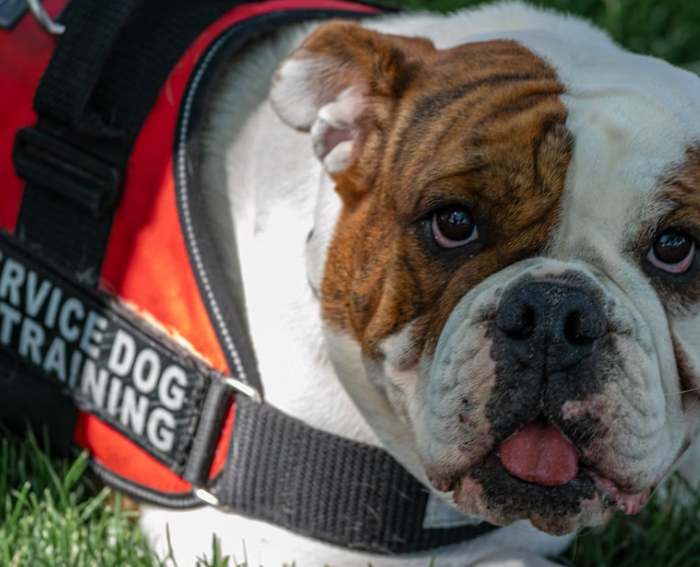
Are Service Dogs in Training Protected Under Federal Laws?
While the ADA specifically covers trained service dogs, the law doesn’t offer protection for service dogs in training.
However, many state laws cover the rights of service dogs in training, so you should still be able to visit public places with your service dog in training. Make sure to familiarize yourself with your state before visiting public premises to avoid issues.
While the FHA doesn’t specifically mention ‘service dogs in training’, it protects the rights of assistance animals. In terms of housing, an assistance animal is an “animal that works, provides assistance, or performs tasks for the benefit of a person with a disability, or that provides emotional support that alleviates one or more identified effects of a person’s disability. An assistance animal is not a pet.”
That said, if your dog is your emotional support animal (ESA), whether they are in the process of training as a service dog or not, they are still protected under the FHA. You may want to learn more about how to make your pet your ESA in our article “How to Adopt an Emotional Support Animal”.
When it comes to flying with service dogs in training, the ACAA doesn’t specifically protect their rights. However, based on the policy of the airline you’re using and specific local laws, you may be able to fly with a service dog in training. For example, some airlines, including major ones like United Airlines, accept service dogs in training.
This is not automatically guaranteed, though, and you should review the service dog policy of the airline of interest and contact their representative ahead of time to ensure compliance.
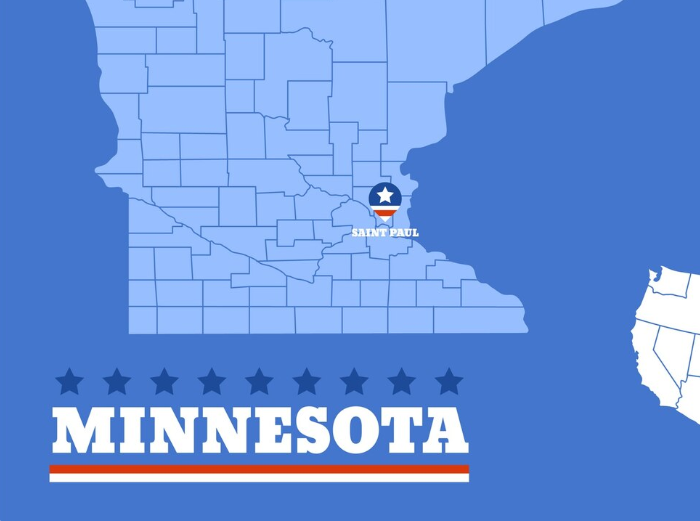
What Does the New Minnesota Law State?
On May 8, 2025, Governor Tim Walz signed House File 688 into law, extending housing protections to those training service dogs under the supervision of accredited organizations.
Previously, only individuals with active service animals were protected from housing discrimination.
This new legislation ensures that trainers can live with the dogs they are training without facing discrimination from landlords or homeowners associations (HOAs).
“Service dogs are vital to the many Minnesotans who depend on their services”.
Let’s take a closer look at the bill:
“Sec. 2. Minnesota Statutes 2024, section 256C.025, is amended by adding a subdivision to read:
Subd. 5. Service dog in training.
(a) For purposes of this section, a "service dog in training" means a dog that is being actively trained as a service dog under the supervision of an organization accredited by Assistance Dogs International or the International Guide Dog Federation to train service dogs.
(b) A person who is actively training a service dog in training is entitled to full and equal access to all housing accommodations provided for in this section. A person who is actively training a service dog in training must not be required to pay extra compensation for the service dog in training but is liable for any damage done to the premises by the service dog in training.
(c) A landlord or board of a homeowners association may require written certification from the organization supervising the training as a condition of granting an accommodation to a person training a service dog in training. An accommodation granted under this subdivision terminates upon completion of the training.”
While the new law in Minnesota specifically protects the rights of service dogs in training, under the supervision of ADI or the IGDF, it is an important step towards recognizing the vital role of service animals in our community.
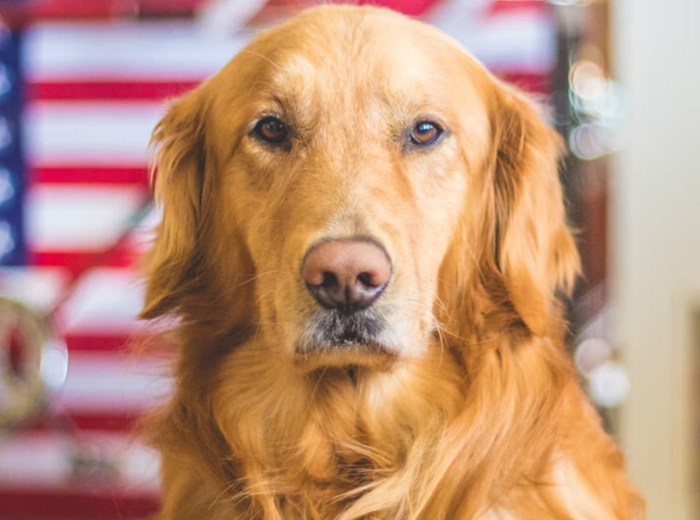
Impact on Service Dog Training Programs
Organizations like Can Do Canines, which train assistance dogs for individuals with a wide range of disabilities, including mobility impairments, autism, diabetes, and seizures conditions, rely heavily on volunteer trainers and foster homes to raise and socialize young dogs. These volunteers provide crucial early exposure to different environments, helping prepare the dogs for more advanced, task-specific training.
However, many of these programs have faced significant obstacles when it comes to recruiting and retaining volunteers, primarily because of restrictive housing policies. Some landlords, rental agencies, or homeowners associations (HOAs) have rules that either ban dogs or impose extra fees and restrictions, even when the animal is part of a service dog training program. As a result, individuals who would otherwise be willing to volunteer have been turned away or forced to drop out.
Minnesota’s new law helps break down a major barrier by giving service dogs in training, and the people training them, the same housing protections as fully trained service dogs.
This means volunteers can welcome dogs into their homes (when training is conducted under the supervision of ADI or IGDF) without worrying about eviction, extra fees, or unfair housing restrictions.
With more foster homes and trainers now able to participate, the law is expected to ease training delays and speed up the process of getting service dogs to the people who rely on them.

Broader Implications for Housing and Disability Rights
This legislation aligns with federal laws, such as the Fair Housing Act (FHA), which prohibit housing discrimination against individuals with disabilities and ensure reasonable accommodations for service animals and their handlers.
By including service dog trainers in these protections, Minnesota is filling an important gap that has often been overlooked, namely, that trainers are a key part of getting assistance/service dogs ready to help those who need them. This change not only makes the training process easier, but also highlights the essential role trainers play in supporting people with various health conditions.
The new law in Minnesota is setting a good example that other states might follow to make life easier and more supportive for people with disabilities. Moreover, by formally recognizing trainers’ rights, the law promotes greater awareness and respect for the service dog training process as a critical component of disability support.
This increased visibility can help reduce stigma and misconceptions around assistance/service animals and their handlers, and foster more inclusive communities nationwide.


